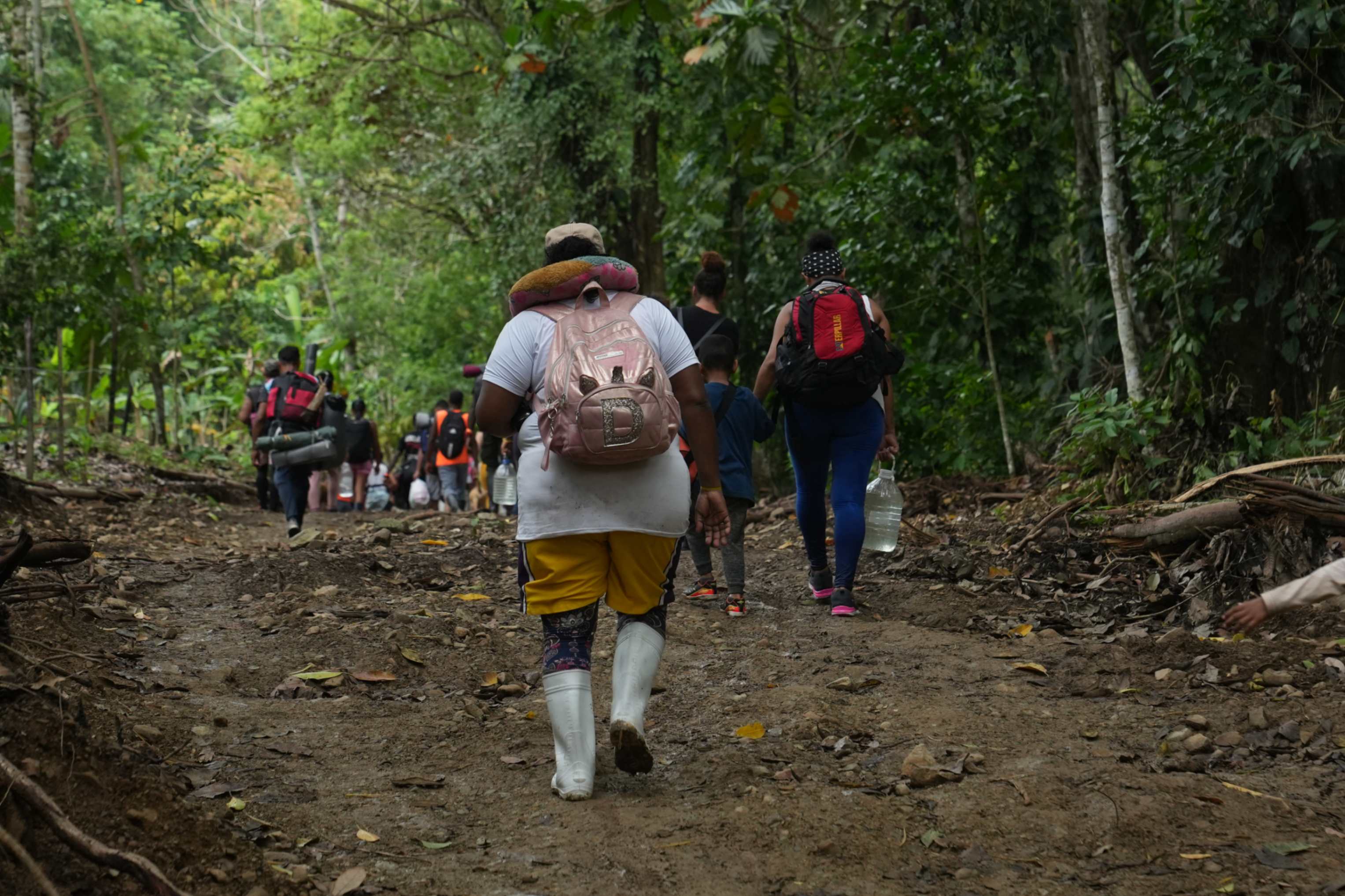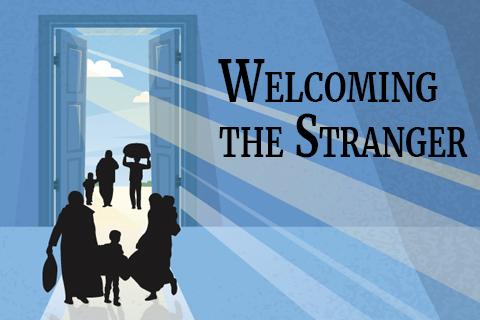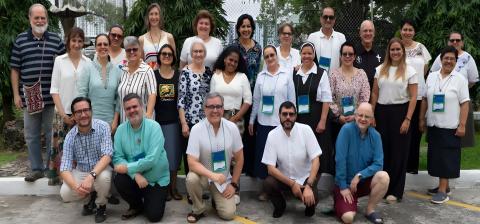
Migrants form small groups to protect themselves as they journey through the wild roads of the Darién Gap, with some acting as lookouts while others protect the most vulnerable people. (GSR photo/Manuel Rueda)
Editor's note: Global Sisters Report's new series, "Welcoming the Stranger," takes a closer look at women religious working with immigrants and migrants. While we cover this topic often, this series will feature sisters and organizations networking to better serve those crossing borders, global migration trends and the topic of immigration in the upcoming U.S. presidential election.

As women and men religious from throughout Latin America gathered in Panama July 11-14 to talk about immigration, the United States made a deal with the Central American country to prevent migrants from advancing through its southern border via the Darien Gap — a dangerous pathway Panama and Colombia share, used to travel north.
"Irregular migration is a regional challenge that requires a regional response," said U.S. Secretary of Homeland Security Alejandro N. Mayorkas July 1, announcing the agreement. "As the United States continues to secure our borders and remove individuals without a legal basis to remain, we are grateful for our partnership with Panama to manage the historic levels of migration across the Western Hemisphere."
But to those who attended the Confederation of Latin American Religious' seminar "Migrant people, refugees and the displaced," the agreement is yet another move by governments to punish the poor for migrating, while offering no solutions to problems that force them to leave, and failing to pass measures to help them cross borders safely.
The Confederation of Latin American Religious (CLAR) denounced governments that "ignore the pain, suffering and threatening situations" that migrants and displaced people face throughout the continent.

Participants in the CLAR seminar on Migrants, Refugees and Displaced Persons met in Panama July 11-14, under the theme "The cries of the violated: hopes and responses in a time of synodality." (Courtesy of CLAR)
In a July 14 statement, those who attended the CLAR seminar spoke against governments "for not facilitating regular migration, for the lack of laws, policies."
They denounced "governmental leaders who ignore the pain, suffering and threatening situations faced by many people and their families in internal and international displacement in all the countries of the continent."
The CLAR group of about two dozen women and men religious who work with migrants and refugees in Central and South America as well as the Caribbean said they met in Panama with women, children and men who crossed the Darién, migrating for a variety of reasons. The U.S.-Panama agreement provides money to deport those caught after crossing the jungle who do not qualify for asylum.
"In our meetings and dialogues, we renewed and strengthened our commitment to our mission with migrants, refugees and displaced persons," said the CLAR statement.
In a July 9 interview with Global Sisters Report, Auxiliary Bishop Lizardo Estrada Herrera of Cuzco, Peru, the general secretary of the Latin American bishops' council, said consecrated life has been "walking together" with migrants through their plight and governments need to do the same. Church-related organizations helping migrants are present "in the jungle, the mountains, the most difficult places" to reach, but the church "cannot meet a demand that grows and grows," he said
Estrada, in New York to meet with United Nations officials about Latin America's worrisome situation — one where lack of jobs, climate change, corruption, violence, along with a growing dissatisfaction with governments, have forced millions to migrate — said the region was experiencing a "moment of sadness" as people are forced to leave.
The United Nations refugee agency estimates that this year 25 million will be displaced and stateless in Latin America and the Caribbean. Women and men religious, even as they've helped those who have been forced to leave, also are included in that number, Estrada said.
Countries such as Nicaragua have expatriated entire congregations of sisters, priests, and three bishops. In places with growing violence such as Mexico and Haiti, women and men religious have stayed to help, and some have paid with their lives.
Advertisement
Red CLAMOR, a network of Catholic organizations that promote social justice, said in a statement it was worried about Panama's agreement with the U.S. and that the problem is the failure of governments to recognize the "right to life, a life of dignity." It also called out certain media for misinformation and of weaving narratives that blame migrant populations for crime, unemployment and ecological destruction.
Immigration and the treatment of migrants and refugees have been a major concern for Catholic organizations throughout Latin America, as they, too, help those escaping poverty, government repression or the environmental destruction of their communities and livelihoods because of climate change.
In an April meeting in Honduras with some 60 general secretaries, presidents of religious conferences and theologians from Latin America and the Caribbean, Sr. Daniela Cannavina, CLAR's general secretary, urged women and men religious in the region to keep speaking out for those most adversely affected by the region's maladies.
She said consecrated life in the Caribbean and Latin America can help "the church today to understand the spiritual and social implications of this moment, in which we must illuminate, encourage, accompany."
[This story was originally published in Spanish Aug. 5, 2024.]





